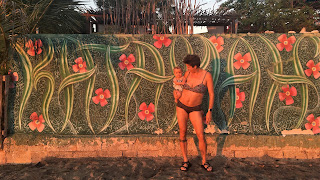Thive Thursday: night photography
This is a on going series that is posted on thursday's, to answer the question: "What helps you to thrive in your environment?" The series is written by myself, and a variety of guest Contributors. This week, the contributor is Sean Birch. Someone I like quite a bit. He may have had a mention on this blog once or twice before. His Photo Website can be found here: Flickr!

What helps me thrive in my environment? Especially when right now, my environment is dark and cold for more than half of the day?
Taking photos after dark.
I wouldn't have thought about this a few weeks or months ago, but winter in Canada (and Edmonton more than some other places) means getting used to living in the dark. This is a different country in the dark than it is in the light, and there's no better way to see it than through a lens attached to a sturdy tripod. I've had enough practice to be feeling the itch again at this time of year.
There are two parts to this. The first is the experience of going out after dark, moving from my warm (and bright) environment to the dim light of my car, and finally to the world of the dark. I walk away from whatever light I had, tentatively at first, and gaining more confidence as my feeble eyes adjust to the dark. (Okay, my eyes aren't that feeble, but I'm hardly nocturnal). Then a feeling grows as I walk: I sense more, I take in as much light as is available, I hear everything I can hear, I pay attention to the ground beneath my feet and the wind across my skin. And I know that I'm closer than ever to falling down, stumbling, being attacked by a bear (hey, it could happen) or getting lost. I may not be meant to live in a dark world, but it's a fun place to visit.

The other part is the photo, and the camera. When it's dark enough that we can't see, there's usually still some light, however little, and the camera is patient. It's the technological embodiment of patience, gathering light only as quickly as it needs to, being completely capable of spending minutes to record a scene. What it tells me is that the dark is composed of more than a smudgy dark bl
ue, it isn't all noisy static in front of my eyes, that it still holds all the colours and detail I know from the daylight
. It says the sources of light we all stick to are blinding points, best turned away from. It says that the points of light in the sky are more colourful and dynamic than I've ever had the patience to notice. Taking photos after dark tells me that the tool we all use to capture everything we see can also be used to reveal what we can't see. I like fee
ling that there is more to the world than we can see, and I like knowing my own vision is limited.
On the walk back to my car, and the drive back to my house, it never fails to impress itself on me that we live in an unnatural world, that our roads and cities and electricity (as much as I love them) have taken something away from our knowledge of ourselves. Something our distant ancestors may have been happy to trade for the comfort of a warm fire to gather around, something that really may be worth less than security, but something that isn't worthless.

Comments